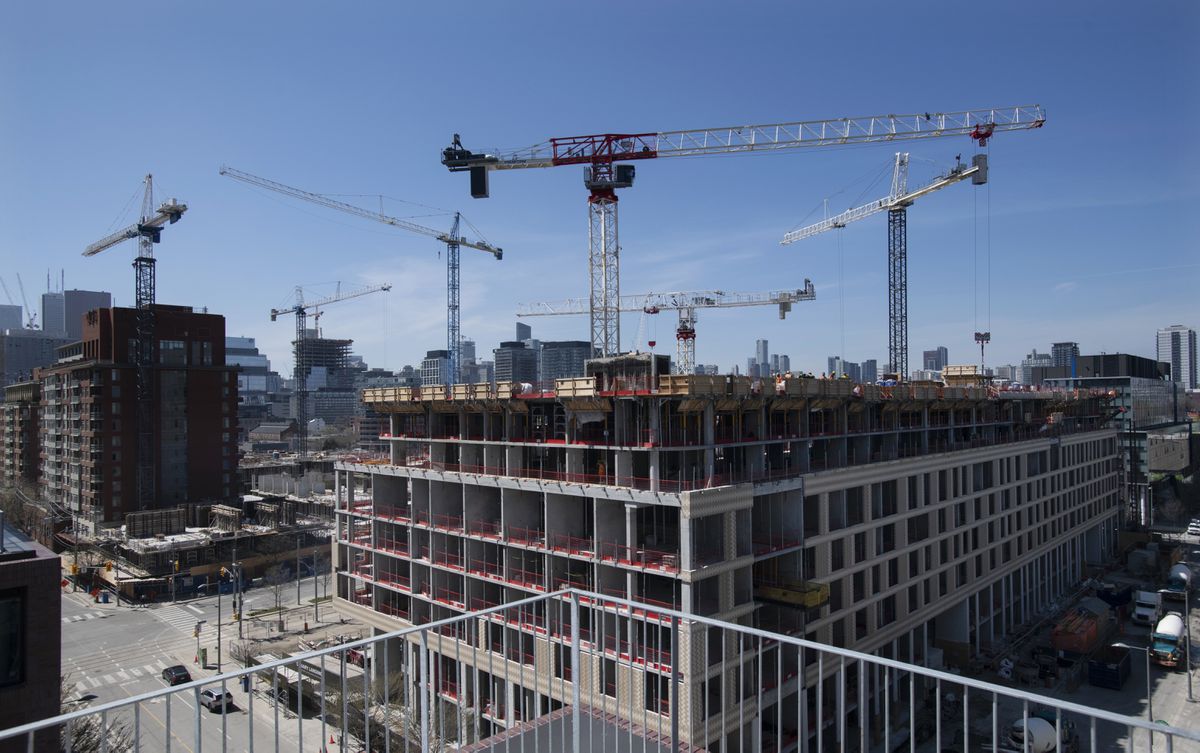
Typical G&M flame bait. Blaming immigrants and JT for the immigration policies. Let’s toss in the health care problems too. Why are the liberals doing this to us? Crocodile tears
No mention of speculative investment in housing, greedy landlords jacking up rents, corpo land holdings, foreign land holders, claw backs on infrastructure grants, complicated building laws, red tape and all that.
This tripe from the Postmedia network is more distraction from the real news.
November 2019, Postmedia announced[25] that 66% of its shares were now owned by Chatham Asset Management, an American media conglomerate which owns American Media, Inc., and is known for its close ties to the Republican party.[26] https://en.m.wikipedia.org/wiki/Postmedia_Network
Update: Whoops. Here I’m talking shit about G&M and they are not owned by Postmedia. I’m not a fan, but I did misrepresent the paper, and this article. I suppose that I’m so used to conservative shit, that I might scan articles leaning to the right. I’ll do better.

Im sorry are we reading the same article? It’s clearly saying immigrants are not to blame as growth rates are the same as what they’ve always been and the supply of housing is the actual problem.

Okay, you got me. The G&M, the conservative shill piece that it is, put out an article that leads the reader in a couple of circles to come around and ponders this thought…
What can be said about population growth is that it makes the costs of bad policy more apparent. If it means we are now beginning, at long last, to have a serious conversation about the barriers to investment and housing construction that have bedevilled this country for decades, then hallelujah for all those extra people, and let’s have lots more.
As you pointed out the article isn’t blaming increased immigration. But it also isn’t pointing fingers at property for profit. Instead the problem eludes to barriers to investment and housing construction.

Don’t forget so many people moving away from long-term rentals to short term unregulated rentals like AirBNB.
Years ago I remember a whole new apartment building being built in Charlottetown, PEI, that was only greenlit on the condition that it wouldn’t be used for short term rentals, because vacancy was under 1%, and about a week before it was ready for people to move in they changed their mind and decided to use it for short term rentals. A whole building.
It’s long past time that AirBNB was regulated.

Just rental property ownership in general.

You know Postmedia doesn’t own the G&M, right?

Whoops! OMG, that’s embarrassing. Thanks for the heads up

No, it’s also too many people.
Our highways systems and medical systems are also overwhelmed, it’s not just housing. Build more houses, bring more people, and we just make all the other problems worse if we don’t change something and start to fix/redesign those systems as well.

Are those problems not due to a lack of transit and healthcare investment and program improvements, moreso than a too many people problem? Bc having or taking in fewer people doesn’t fix either of those.

Yes, that’s what I’m saying. We definitely need to build more houses, but if we don’t fix those other areas at the same time it will be a nightmare.
Just building houses won’t fix our problems, which means that lack of housing isn’t the main issue it’s too much people. Too many people for our housing supply, too many people for our roads, and too many people for our medical care.
If we build more houses, get more doctors and nurses, and fund public transportation, than we no longer have too many people because we are better built to serve and house more people.

Our highway systems have been overwhelmed for over a decade, and they should stay overwhelmed. Stop driving. We should be building more transit instead. But transit is only viable in high density areas, and we don’t have enough of those. So let’s keep bringing in people, and fire all the folks at City Hall telling developers that those people can’t have homes.

Too many domestic speculators. Up to 30% of Canadians are speculators. That’s fucking gross and needs to be banned/taxed to hell and back.

I would slightly rephrase this to “too little housing.” Houses per se is not the answer, because just building more single family houses is not going to solve any problem that isn’t going to be massively outweighed by other problems that are exacerbated, as we’ve seen over the past 70+ years of suburban development. Increasing infill density and allowing for “missing middle” housing and mixed use development is the way to go, at least as far as the problems faced by your downstairs neighbors are concerned. This also must be complemented by prioritization of public transit and active transport as preferred modes of transportation in cities, coupled with redevelopment of parking lots and a moratorium on any new freeway construction, as more traffic lanes always and only ever make traffic worse.
This is the best summary I could come up with:
Why are housing prices in Canada so high – fifth highest, relative to income, in the OECD?
Canada’s GDP per capita is no higher than it was in 2017; labour productivity, having fallen for five consecutive quarters, is back to where it was in 2014.
It would be one thing if the supply of either were running flat out – if investment or output or housing starts were at record or even unusually high levels, but still could not keep up with the torrid growth in population.
I suppose it’s possible to connect the relative stagnation of per capita GDP over the past several years to the surge in population over the last two.
Housing starts, at roughly 260,000 annually, are lower now, in absolute terms, than they were in the early 1970s, when our population was barely half what it is today.
If it means we are now beginning, at long last, to have a serious conversation about the barriers to investment and housing construction that have bedevilled this country for decades, then hallelujah for all those extra people, and let’s have lots more.
The original article contains 819 words, the summary contains 185 words. Saved 77%. I’m a bot and I’m open source!

Can we have a Cabadahousing community where we can post these things?
I know it’s an important issue in Canada, but I feel like this is all that is talked about on here.

